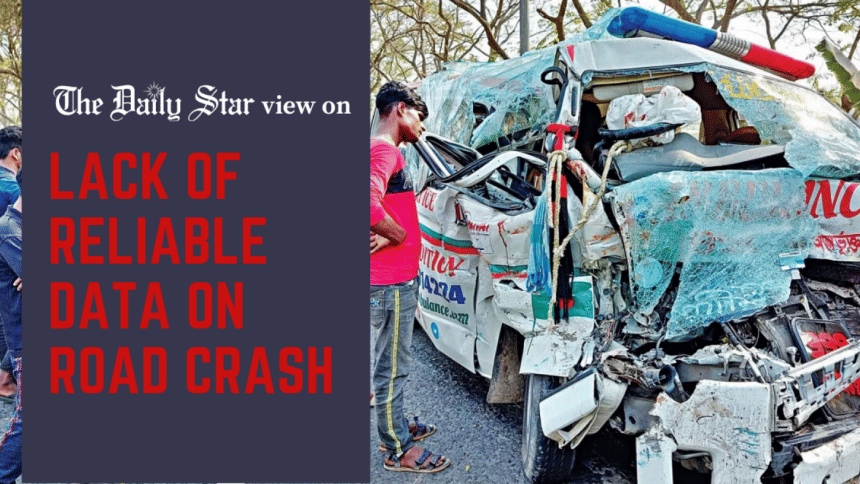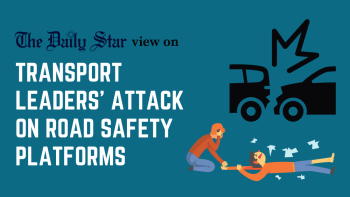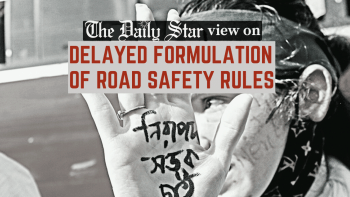We need reliable official data on road crashes

Despite fatal road accidents becoming a regular phenomenon in the country, it is disturbing to see how casually this is being treated, with government agencies themselves having no uniform road crash data. Until January, Bangladesh Road Transport Authority (BRTA) used police data on road crashes, but then it started publishing its own. And according to its data, 636 people were killed and 752 others were injured in 630 road accidents in January and February. But this does not match with police data, which says that 542 people were killed and 420 others were injured in 557 road crashes during the same period.
Aside from contradicting each other, these numbers are also much lower than that provided by independent organisations, which puts a question mark on the former's initiatives. Lack of reliable official data could derail the government's plan to implement the National Road Safety Strategic Action Plan 2021-2024 to reduce 20 to 25 percent of casualties by 2024, and to halve the casualty number by 2030. But what number will that be? Besides road safety campaigners, different international organisations have also raised questions about the veracity of our accident data.
The World Bank, for example, which already approved a loan for a Tk 4,988.14 crore project on road safety – under which a road accident database will be developed, among other targets – said that the "poor quality and unreliable data on crashes, deaths, and injuries impede proper road safety management." One may recall that, according to a World Health Organization's report published in 2018, at least 24,954 people were killed in road crashes in the country in 2016. According to the police, however, only 2,463 people were killed in 2016. The huge discrepancy between these figures shows how confusing policy-making can be in the absence of reliable data.
The reason given by the BRTA chairman for the difference between BRTA and police data is that the latter is based on the cases filed over accidents, but many injured died in hospitals later. Since the BRTA also includes hospital data, its number may be higher. But how will it explain the discrepancy between the numbers of accidents recorded? Either way, the data has to be accurate, which requires developing a uniform system of documentation. In the absence of that, it will be more difficult for the authorities to take proper measures to reduce road crashes.
It doesn't boost confidence when the authorities, far from seeing the error of their ways, criticise road safety campaigners for publishing "fabricated" reports on crashes, as the Road Transport and Highways Division secretary did early this year. Using the classic diversion tactic to cover up their own failure, he said such reports were "tarnishing the image" of the country. But what about the fact that responsible agencies have repeatedly failed to prevent loss of life due to road accidents? Why is it that the same government agencies that criticise data provided by safety campaigners are themselves failing to prepare accurate data? The government must hold them accountable for their failures so they can show better results.


 For all latest news, follow The Daily Star's Google News channel.
For all latest news, follow The Daily Star's Google News channel. 










Comments